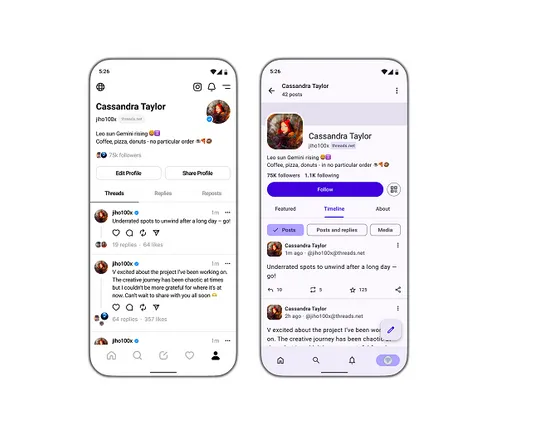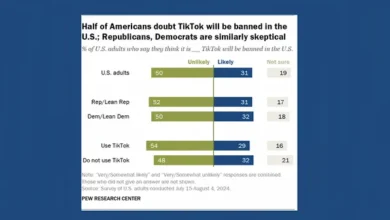
Meta is expanding its fediverse sharing experiment once again, with Threads users in over 100 regions now able to cross-post between Threads and other decentralized social platforms that utilize ActivityPub protocols.

As you can see in this example, the expanded integration will now enable more Threads users to display their Threads content in other decentralized social apps and tools, including Mastodon and WordPress. Users of these services will be able to follow, like, and reply to Threads posts, without having to do so via Threads itself, providing more options for reach and engagement stemming from the Threads experience.
Meta initially made fediverse sharing available in the U.S., Canada and Japan back in March, and it’s now opening up the option to a lot more users.
As explained by Meta:
“People 18 and over with public Threads profiles in 100+ countries can turn on sharing to the fediverse. If you turn on sharing to the fediverse, people on other fediverse servers will be able to search for and follow your Threads profile, see and interact with your content, and share your content with anyone on or off their server.”
At the same time, Meta’s also improved its fediverse engagement options.
Now, Threads will display replies to your posts from federated servers, though you won’t be able to reply to them yet.

You will be able to like them, but Threads is still working on full integration, which will enable broader interactivity across platforms.
There are also functional limitations based on what’s supported within ActivityPub, meaning that posts with restricted replies, posts with polls, re-posts of non-federated posts, and quote posts are not available for fediverse amplification.
Meta also notes that sharing to the fediverse impacts your privacy and control over your information.
But, in principle at least, Meta’s fediverse sharing push will enable Threads to link into the broader decentralized social push, which ultimately gives users more control over their data, over the algorithms applied to their experience, and the moderation rules of each social app that they use.
I mean, I’m yet to see evidence that the majority of social media users actually care enough about these things for it to become a broader shift. But conceptually, the fediverse push is about taking control back from big corporations, and enabling more customized, personalized social media.
And conceptually, that does hold appeal. Now it’s just a matter of convincing enough users to make the switch.
Because at the end of the day, despite all the complaints and gripes about the big social apps, people will gravitate towards the platforms that everybody else is using. If there’s an experience that people feel like they’re missing out on, they’ll download a new app, but these days, it’s getting more and more difficult to gain traction with alternative social apps, which is an impediment to broader fediverse take-up.
There have also been questions about censorship within fediverse clusters, and exclusionary approaches from moderators in some groups. While at the same time, many fediverse admins don’t want Meta to take part in the poject, because it’s companies like Meta that prompted the broader fediverse shift in the first place, by profiting off of user data, and making moderation calls as they see fit.
So, overall, it’s a bit of a weird project, and it feels mostly like Meta’s undertaking such just to ensure that it has some skin in the game, in case it does take off.
Yet, despite broader concerns about Meta’s practices, it still had four of the top 10 most downloaded apps in Q1.
So if there’s broader momentum gaining for a fediverse shift, it’s not widely apparent as yet.
Source link




